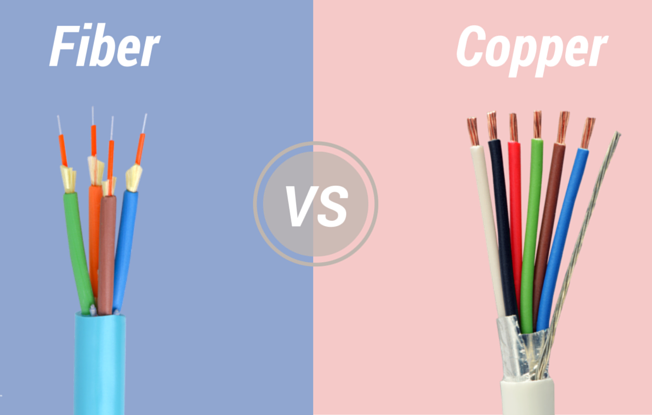There are a lot of networking channels, such as copper cables, radio links, and microwaves. However, the only efficient networking, which is cheap, fast, and versatile, is the fiber network.
Copper cables, which are alternatives for fiber networks, are the most acceptable option of all other networking channels. However, fiber cables have numerous advantages. This write-up is all about a comparison between these two types of networks.

What is a fiber network?
Before we dig deep into the comparison, let’s clarify your concept of the fiber network. As copper cables are made up of copper; similarly, fiber cables are made up of glass.
Thin strands of glass with multiple layers of plastic make fiber cables a functional network channel.
Comparison
Security
If you belong to a security-conscious organization, fiber cable will be an ideal choice for you. As the signals are not transferrable outside the wire, fiber cables are rendered secure.
In contrast, copper cables emit electromagnetic waves. These electromagnetic waves can allow hackers to interpret the data flowing inside the cable without even disturbing it.
Versatility
Copper cables need regular upgradation for efficient transmission of data. If you want to transfer data at higher speeds, you have to pay the maintenance costs it will claim over the years.
However, fiber cables are a versatile channel for data transmission. They don’t need constant maintenance or upgradation. They are functional enough to bear large amounts of data transmission.
Covered Distance
When talking about distance, fiber cables are so much better than copper cables. Copper cables can transmit data to a distance of 300 feet only.
On the other hand, fiber cables can transmit data up to 1500 feet. Also, the limit of transmission distance may vary according to the type of fiber cable.
Reliability
Fiber cable is secure from any interference. External factors can’t affect the data transmission. It is why fiber cables are a favorable option for environments with electrical noise.
However, external factors, like noise or light, might affect its functionality.
What to Choose?
Some of you might argue that fiber cables are an expensive option. However, once installed, fiber cables don’t need maintenance and up-gradation as copper cables do. Also, the advantages of fiber cables make them a favorable option for numerous settings.
Want to learn more about fiber networks? Visit AiNET for interesting information.
